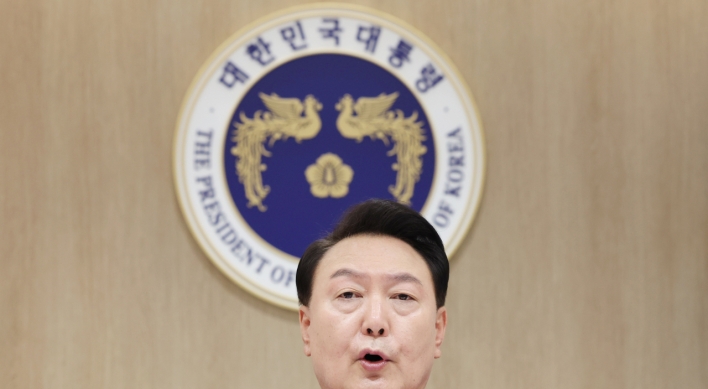Korea’s central bank is expected to keep its benchmark interest rate at 2 percent this month amid growing concerns over household debt and foreign capital outflows.
The Bank of Korea cut its key rate twice this year ― in August and October ― to a record low of 2 percent.
Industry watchers are concerned that another cut may increase the level of Korea’s household debt.
South Korea’s household debt has reached 1 quadrillion won ($940 billion) last year, which is threatening the economic health of individual households.
Bank of Korea Gov. Lee Ju-yeol shared similar concerns during a parliamentary audit last month.
“There are concerns that household debt may reach a critical level that cuts consumption,” he said.
Fears of a foreign capital outflow could also keep the central bank from conducting an additional rate cut.
With the Korean won weakening against the dollar, there was a capital outflow of more than 2 trillion won from the Korea’s stock market last month.
“If the won depreciation accelerates, there will be more capital outflow from foreign investors who are concerned about foreign-exchange losses,” said Ji Ki-ho, a researcher at LIG Investment & Securities.
Lee agreed that last month’s rate cut may have increased capital outflow.
Pundits said the central bank was likely to lower the key rate early next year if growth failed to pick up and the weak yen continues to sap Korean companies’ competitiveness.
“The BOK may lower the rate within a few months if consumer prices and facility investment continue to be sluggish,” said Yang Jun-sok, an economics professor at Catholic University of Korea.
Korean consumer prices have risen at less than 2 percent for the past two years, raising concerns that the economy may suffer from deflation.
Facility investment has also been slow since last year, as companies lack confidence that the economy will improve. Investment in the third quarter of this year dropped by 0.8 percent.
The latest overseas economic policies ― Japan’s additional quantitative easing and the likelihood of the European Central Bank also adopting QE ― will encourage the BOK to increase the key rate to support local exporters, industry watchers said.
By Shin Ji-hye (shinjh@heraldcorp.com)
The Bank of Korea cut its key rate twice this year ― in August and October ― to a record low of 2 percent.
Industry watchers are concerned that another cut may increase the level of Korea’s household debt.
South Korea’s household debt has reached 1 quadrillion won ($940 billion) last year, which is threatening the economic health of individual households.
Bank of Korea Gov. Lee Ju-yeol shared similar concerns during a parliamentary audit last month.
“There are concerns that household debt may reach a critical level that cuts consumption,” he said.
Fears of a foreign capital outflow could also keep the central bank from conducting an additional rate cut.
With the Korean won weakening against the dollar, there was a capital outflow of more than 2 trillion won from the Korea’s stock market last month.
“If the won depreciation accelerates, there will be more capital outflow from foreign investors who are concerned about foreign-exchange losses,” said Ji Ki-ho, a researcher at LIG Investment & Securities.
Lee agreed that last month’s rate cut may have increased capital outflow.
Pundits said the central bank was likely to lower the key rate early next year if growth failed to pick up and the weak yen continues to sap Korean companies’ competitiveness.
“The BOK may lower the rate within a few months if consumer prices and facility investment continue to be sluggish,” said Yang Jun-sok, an economics professor at Catholic University of Korea.
Korean consumer prices have risen at less than 2 percent for the past two years, raising concerns that the economy may suffer from deflation.
Facility investment has also been slow since last year, as companies lack confidence that the economy will improve. Investment in the third quarter of this year dropped by 0.8 percent.
The latest overseas economic policies ― Japan’s additional quantitative easing and the likelihood of the European Central Bank also adopting QE ― will encourage the BOK to increase the key rate to support local exporters, industry watchers said.
By Shin Ji-hye (shinjh@heraldcorp.com)












![[KH Explains] How should Korea adjust its trade defenses against Chinese EVs?](http://res.heraldm.com/phpwas/restmb_idxmake.php?idx=644&simg=/content/image/2024/04/15/20240415050562_0.jpg&u=20240415144419)







